The Kyrgyz President Sadyr Japarov received the Ministers of Foreign Affairs of the CSTO member states and the Secretary General of the Organization in Cholpon-Ata on June 30. The meeting was attended by the Foreign Ministers of Kyrgyzstan, Belarus, Kazakhstan, Russia and Tajikistan.
On June 30, 2025, a regular meeting of the CSTO Council of Foreign Ministers was held in Cholpon-Ata (the Kyrgyz Republic) under the chairmanship of the Kyrgyz side, which was attended by the Organization's Secretary General Imangali Tasmagambetov.
Safar Umarzoda, Head of the Department for Countering Challenges and Threats of the CSTO Secretariat, took part in a special event (side-event) on "Countering Radicalization leading to terrorism and Extremism" organized by the Russian Federation on the margins of the OSCE Annual Conference on Security Review, where he reported on the measures taken by the CSTO on countering terrorism and extremism, and willingness to share the experience gained.
On June 19, 2025, in Bosteri, Issyk-Kul region of the Kyrgyz Republic, the XIX meeting of the Council of the Advisory Coordination Center of the Collective Security Treaty Organization on Computer Incident Response (CSTO CCC) was held, which was attended by delegations of representatives of national authorized bodies for responding to computer incidents of the CSTO member states.
On June 24-26, the second staff negotiations were held in the Kyrgyz Republic on the organization and conduct an operational meeting with the Command of the Collective Rapid Deployment Forces of the Central Asian Region (CAR CRDF) and a command and staff training with units of the CAR CRDF "Rubezh-2025", conducted as part of the joint operational and strategic training "Combat Brotherhood-2025".
Life and the feat of Mikhail Devyatayev
11.02.2020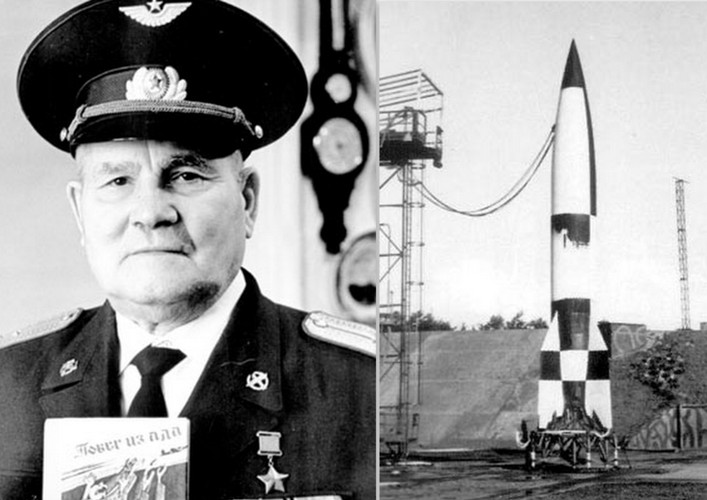
Heinkel flies to the east
Those who are interested in the history of the World War II are aware of the feat of a fighter pilot, Hero of the Soviet Union Mikhail Petrovich Devyatayev. He and nine others of his comrades fled on a German plane from fascist captivity. And not just from a regular captivity, but from a death camp from Usedom Island. Very few know that, but the recognition of compatriots and the well-deserved Golden Star of the Hero of the Soviet Union was awarded to the Mikhail Devyatayev before long. And even, if it is appropriate to put it this way - by a miracle. The less known fact is that Sergey Pavlovich Korolev, the chief engineer of the soviet missilery played the significant role to get the justice served.
How did that happen? Let's first remember who Mikhail Devyatayev is and what happened to him ...
Mikhail Petrovich was from a peasant family. Originally from the Mordvinian village of Torbeev. In 1933 he graduated from 7 classes, in 1938 – Kazan River Technical School, flying club. He worked as an assistant captain of the longboat on the Volga. During the World War II, he was the commander of the 104th Guards Fighter Aviation Regiment. His call sign was “Mordvin”. Guard senior lieutenant Devyatayev shot down a total of nine enemy aircraft in air dogfights. By the way, the regiment in which Devyatayev served was called musical. And it was this military unit that served as the prototype of the famous film by Leonid Bykov, "Only old men are going to battle."
... On the evening of July 13, 1944, he flew out as a part of a group of fighters of Major Bobrov to break up a raid of enemy aircraft. In an air battle in the Lviv area, Devyatayev’s plane was shot down and caught fire. Upon landing in an unconscious state on the territory conquered by the enemy, Devyatayev was captured.
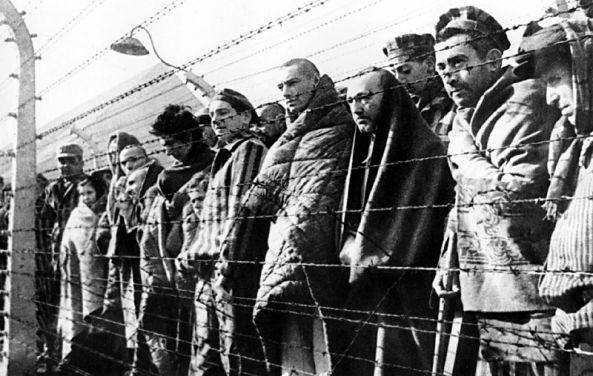
At the first, he was kept in the Lodz prison camp. There he made his first attempt to escape - he dug a sap with his comrades from the hut behind the fence. They found a sap ... Then there was Sachsenhausen ... Then was a camp in Peenemuende on the island of Usedom. There, in the missile center, new weapons were being developed - the V-1 flying bombs and the V-2 ballistic missiles.
Devyatayev recalls that at Usedom, not only adults, but also teenagers, were tormented. They were used as laboratory rats. “Here they launch an ominous multi-ton rocket,” we read from Mikhail Petrovich. “Young prisoners were taken out and lined up in a circle around the outer hut. The rocket was deafeningly buzzing, spewing great flame, heat, gases. After the launch of the rocket, the local “medicine” grabbed the boys, checked the condition of each: how someone has a heartbeat, how other organs work. And it turned out that one of them had eardrums burst, the other had scorched eyes, the third lost his mind. ”
As for Devyatayev himself, he very soon fell into the category of suicide murderers - on February 1, 1945, he beat the traitor and provocateur Konstantin Makhorin from Kharkov - he in "friendly" conversations persuaded the prisoners to join the Nazis. For this, the SS men appointed Mikhail "ten days of life." This meant that each of the camp guards had to beat the prisoner in any way at all times. If in ten days the prisoner was not beaten to death, he was shot. But almost nobody survived until the tenth day. After the first day of those ten, Devyatayev realized that if he couldn’t manage to hijack the plane the next morning, you might not even plan to escape. And he fled with his comrades, having stolen the German “Heinkel”. Of course, a group of fascist fighters was appointed in pursuit of them. But God kept the brave souls - by a miracle they managed to hide in the low clouds, and almost blindly fly over the sea to their own.
Much has been written about this extraordinary escape. And we will not repeat. We only recall how Devyatayev himself later recalled the meeting “with his own” after landing: “The soldiers took us in their arms and carried us. They threw jackets and sweaters on our shoulders. Conducted by the whole crowd deep into the forest, to the location of the military unit. We got right to the soldier’s camp kitchen ... The commander took out a flask, glasses ... He asked: will you have a drink? I said: I’ll drink it ... I drank vodka and immediately lost consciousness ... "
"In the direction of exposure ..."
But if in the advanced fighting military units of the heroes, carry shoulder high, then in the state security organs, fortunate daredevils were treated with caution. Secret agents could not believe that an exhausted prisoner of a death camp could take someone else’s plane into the air, hide in the clouds and, having flown over the front line, put him in an open field. Could it be a double agent ...
Nevertheless, after checking at the filtration camps, all ten fugitives were given the opportunity to continue fighting. True, Devyatayev finished off the fascist beast no longer in aviation - the fighter was not entrusted to him. What Mikhail Petrovich often lamented. But it was good and so ...
After the Victory, it turned out that out of the dozens of daredevils only Devyatayev, Fedor Adamov, Ivan Krivonogov and Mikhail Emets survived. And they, of course, rejoiced that they remained alive. But this life could hardly be called worthy of a perfect feat. Why is that? The answer to this question is found in the notes of Ivan Krivonogov of October 15, 1956. “In addition to hostility and distrust, I personally did not feel anything from anyone,” he writes. “I was repeatedly called to the Ministry for State Security, interrogated, looking at me as a criminal, and in civil organizations looked and look like a person who does not inspire political trust - a traitor to the motherland. Until now, I am scared to experience these undeserved humiliations and insults, everything in me protests against this flagrant injustice. ”
Mikhail Devyatayev found himself in the same situation. Moreover, the state security organs, it seems, from the very beginning headed for "exposing the traitor." So, almost immediately after the landing of Devyatayev’s Heinkel and the meeting of the brave fugitives “with their own”, the head of the Smersh counterintelligence department of the 61st Army, Colonel Mandralsky sent his command a note under the heading “Top Secret”. The certificate had an affected title: “On the landing of the German “Heinkel-111” 311 SD aircraft and on the detention of a crew of 10 people.” And in this document, Colonel Mandralsky reports: "we interrogate the detainees - Devyatayev and others - in the direction of exposing them to belong to the enemy intelligence agencies."
The "vigilance" of organs also affected the family of Mikhail Petrovich. The daughter of Devyatayev - Nelly - wrote later in her diaries that her "mother, as the wife of a former prisoner of war, the leadership of the Institute of Epidemiology and Microbiology, where she then worked, was deprived of the medal" For the Victory over Germany ... ". She was also removed from the secretaries of the Komsomol organization, forced once a week in the institute’s special units to retell conversations with his father. ” According to her, people did not greet him, when they met they crossed the street, wrote denunciations, and some openly called him a traitor. ” And this did not last a month, not a year or two, but as much as twelve years.
Checks, as they say, checks, but you also had to live on something. But according to the biographer Devyatayev, Doctor of Historical Sciences, Professor Anatoly Alexandrovich Ivanov from Kazan, Mikhail Petrovich, “not only were they not allowed to fly, they also refused to find him in the same Kazan river port under various pretexts ... He couldn’t he in his native Torbeev ... ". Only in May, 1946, he was accepted to the post of duty on the station in Kazan. And only six years later, in April 1952, Devyatayev began working as the first assistant to the captain of the longboat. Then he became the captain of the longboat. And in April, 1955, "transferred by the captain of 2034 motorship."
But it’s not in vain that they say that we are rewarded according to our faith ... For all these years, Mikhail Petrovich Devyatayev never fell down, never was on the drink. He simply worked honestly and believed in his star. And after twelve years the star lit up…
Guarantee of Korolyov
In 1957, Mikhail Petrovich Devyatayev was called up to the military comissariat and announced: so, they say, and so on - you have been awarded the title of Hero of the Soviet Union ... And Devyatayev, who has never wavered in the death camp, cried for the first time ...
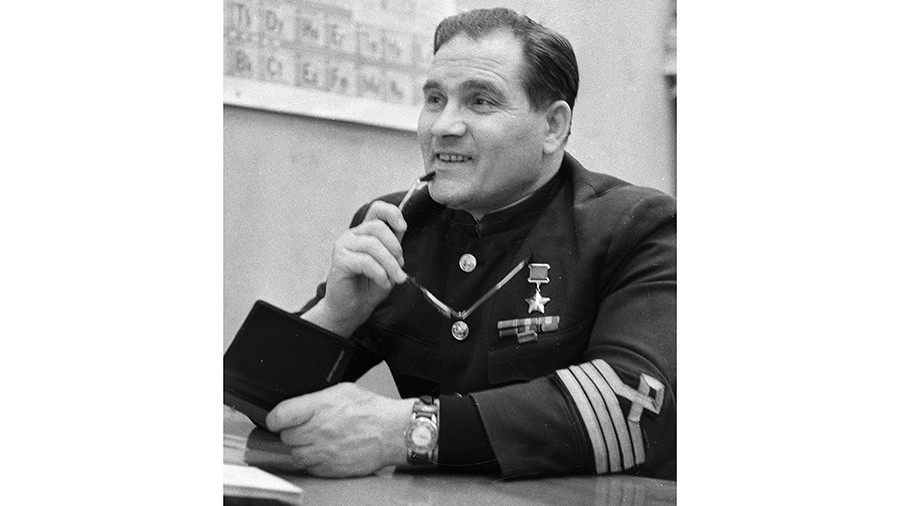
When they handed the Golden Star, Devyatayev asked a natural question: what happened, and thanks to whom or what made his life so abruptly and unexpectedly change? Looking ahead, here are the words of Mikhail Petrovich, recorded later by his daughter Nelly: “When they gave me the Hero title in 1957, I asked Air Force Major General Ivan Parkhomenko, who asked for me? Not the Kazan river port! He made inquiries and said: some great and very secret scientist. " And only when Sergey Pavlovich Korolev, the chief engineer of space rockets died, Devyatayev realized who was his star godfather.
We also add that Yuri Frolovich Yushkin, the secretary of the Torbeev district committee of the CPSU in those years, and later the director of the Mordovian book publishing house and the head of the republican archive service, found out that it was Sergei Pavlovich Korolev who “took the liberty and vouched that Mikhail Petrovich not recruited agent of the German Reich. " Where and how did the life paths of the great designer and the former pilot, who was under suspicion and supervision, intersect?
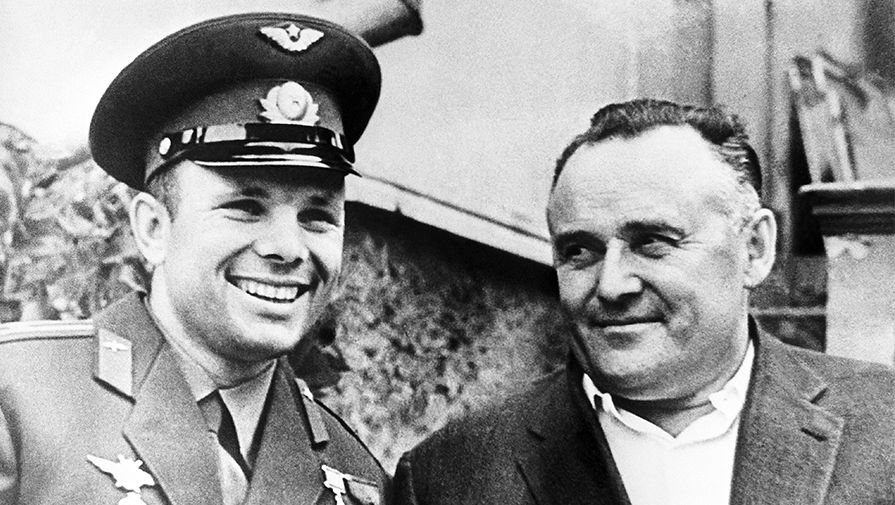
Devyatayev met with Sergei Pavlovich Korolev in September 1945. Well, as I met ... His unit was moving home, east, and Mikhail Petrovich was "asked to stay." Soon he was introduced to "Colonel Sergeyev" and a group of comrades, with whom he went to Usedom. They stayed there for three days, and Devyatayev told as much as he could about everything that he had been able to see during his time in the camp — about the launch of V-1 flying bombs and the V-2 ballistic missiles, about their ups and downs, about rocket launchers , platforms for their transportation, mines.
And here, as Sergey Pavlovich’s daughter recalls, who, together with her father, visited the Baltic Sea, on the island of Usedom. “On the island, my father and showed me and my mom a lot of interesting things,” writes Natalya Koroleva, “He has already visited here more than once, for the first time - in September 1945. We saw the chic hotels and luxurious beaches of the famous “Zinnowitz” resort, and nearby are the remains of rockets and technical facilities, where “retaliation weapons” were recently made and tested ... On the island there were still camp buildings surrounded by barbed wire, where prisoners of war of different nationalities lived during the war. One of the prisoners of the local concentration camp was the Soviet pilot M.P. Devyatayev. On February 8, 1945, he and nine other prisoners made the legendary escape from Peenemuende, capturing and lifting the German “Heinkel” aircraft. Mikhail Petrovich recalled that in the fall of 1945, by order of our command, he was again brought to the island of Usedom. At that time there were many military men who were interested in everything that he knew about the missile center before his escape. The most meticulous was the colonel, who called himself Sergeyev. In 1957, M.P.Devyatayev was awarded the title “Hero of the Soviet Union” and, as he was told, an important role in this decision was played by Professor K. Sergeev. Only after the death of his father, Devyatayev found out who was hidden under a pseudonym. ”
One can only guess how Korolev himself learned about the plight of his accidental guide to the island of Death ... But somehow he did ...
“Rocket” of Devyatayev
... And miracles, as you know, they should start, and you won’t stop them ... In 1957, the first experimental hydrofoil ship, created by the talented design specialist Rostislav Evgenievich Alekseev, was launched at the Gorky plant "Krasnoye Sormovo". As you know, this ship was called the "Rocket." So - Mikhail Petrovich Devyatayev went down in the history of the Russian river fleet as the first captain of “Rocket-1”. He participated in sea trials, brought the ship to operational conditions. And on August 25, 1957, it was Devyatayev who was at the helm of this ship in the historic first voyage from Gorky to Kazan. This is the power of the great designer.
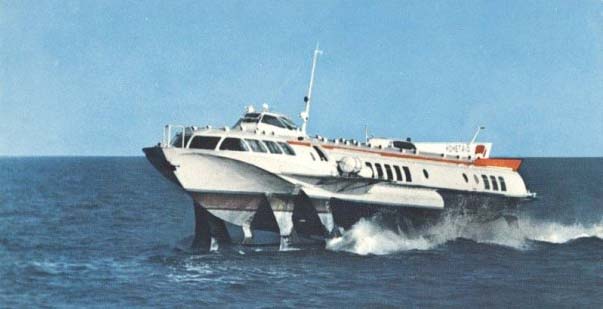
And one more interesting, almost mystical sign of fate. In the summer of 1999, Mikhail Petrovich visited Germany. There he happened to meet with the former fascist pilots Max Meyer and Gunther Hobom. These were the very pilots who flew from Usedom in pursuit of the stolen Heinkel. After the war, Max Meyer worked as a department head in the West German Ministry of Defense, in Bonn. Here is another interesting intersection.










